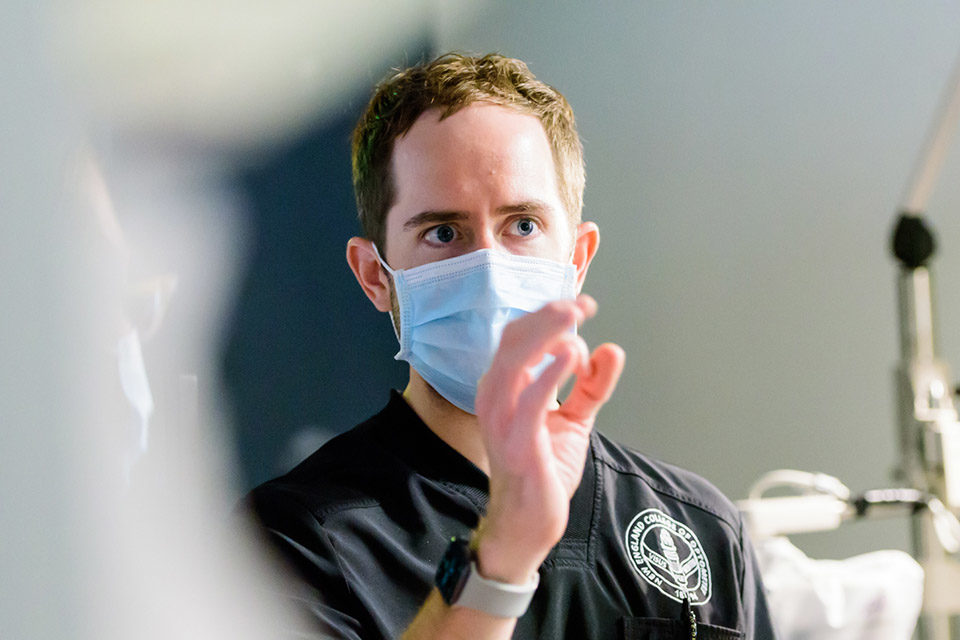Is telehealth right for you? It depends, says expert

NECO clinics offered tele-optometry services to upwards of 450 patients a month at the height of the COVID-19 pandemic.
If you’re like most people, you’ve done a lot of things online starting in 2020 that you would have done in person before. You may even have had some remote healthcare appointments. NECO clinics offered tele-optometry services to upwards of 450 patients a month at the height of the COVID-19 pandemic, according to Timothy Bossie, OD, clinical director at NECO’s Eye Care Center and telehealth expert.

Dr. Anita Gulmiri completes a patient visit by telehealth.
Now that most clinics are fully open for routine care again, you may be wondering if telehealth eye care services are still an option — and if that option is a good one for you or your family members. The answer, Dr. Bossie says, is yes, with certain stipulations.
“The biggest thing we’ve learned is that telehealth is one tool in our toolkit,” he explains. “We’re definitely not done with it; we will continue to use it for our patients.” That said, remote optometry is more effective in some situations than others, and in some cases, like specialty contact lens fittings or certain ocular emergencies, it proves to be more difficult. Dr. Bossie and his colleagues find the most successful uses for telehealth optometry to be low vision rehabilitation or pediatric vision training sessions.
Telehealth has been especially helpful in cases where continuity of care, with regular visits, is vital to progress. It has also been beneficial for patients with mobility issues or long commutes — some were driving one to two hours for their weekly or monthly appointments — with remote visits making care much more accessible.
In addition to considering what types of services you require, insurance coverage is also a factor. Recently, when coronavirus cases were decreasing, several companies made changes reverting back to in-person service, making telehealth easiest for patients in self-pay services. However, telemedicine visits may still be covered under some patients’ insurance policies.
Dr. Bossie recommends speaking with NECO’s patient care coordinators for more information and to determine if you’re a good candidate for remote care. “They have an excellent understanding of the telehealth process, types of services that can be offered to patients, and insurance considerations.”
NECO has proven to be a leader in telehealth optometry, and providers recognize its many benefits, especially convenience for patients. “There will continue to be adjustments in technology, insurance coverage, and regulations that shape how telehealth is used in our optometry practice,” Dr. Bossie says, “but I firmly believe that telehealth is here to stay.”